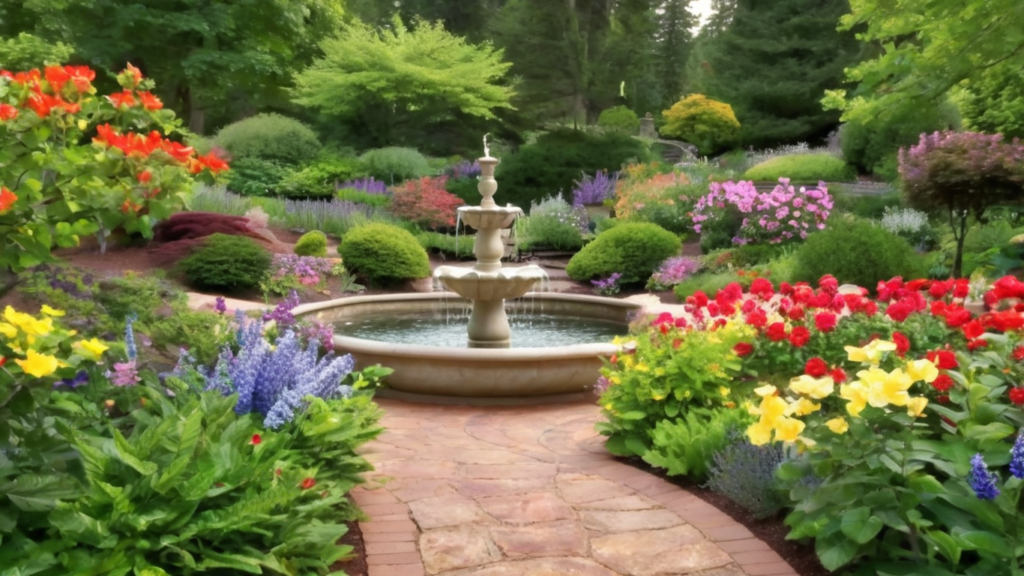
In an era where health and wellness are paramount, the idea of growing your own herbal garden has gained immense popularity. Not only do herbal gardens offer a plethora of health benefits, but they also provide an array of other advantages that enhance your lifestyle and well-being. Whether you’re an avid gardener or a beginner, cultivating a herbal garden can be a rewarding and transformative experience. This article delves into the many reasons why you need a herbal garden, offering practical tips and insights to help you get started on this green journey.
1. Health and Wellness Benefits
Herbs have been used for centuries for their medicinal properties. A herbal garden provides you with easy access to fresh, organic herbs that can support your health in various ways:
- Natural Remedies: Herbs like echinacea, chamomile, and peppermint are known for their medicinal properties. Echinacea can boost your immune system, chamomile helps with sleep and relaxation, and peppermint can alleviate digestive issues.
- Nutrient-Rich: Fresh herbs are packed with vitamins, minerals, and antioxidants. For instance, parsley is rich in vitamin C, vitamin K, and iron. Adding fresh herbs to your diet can enhance your nutritional intake significantly.
- Aromatherapy: Many herbs, such as lavender and rosemary, have calming scents that can help reduce stress and anxiety. Growing these aromatic herbs allows you to harness their soothing properties for homemade aromatherapy.
2. Culinary Advantages
A herbal garden is a chef’s delight, bringing an array of flavors and aromas to your kitchen:
- Freshness at Your Fingertips: Having a herbal garden means you can pick fresh herbs whenever you need them. Fresh herbs have a more vibrant flavor compared to dried ones, enhancing the taste of your dishes.
- Variety and Creativity: With a variety of herbs at your disposal, you can experiment with different cuisines and recipes. Basil, thyme, oregano, and cilantro are just a few examples of herbs that can diversify your cooking.
- Cost-Effective: Growing your own herbs can save you money. Instead of buying expensive herb packets that often go to waste, you can simply harvest what you need from your garden.
3. Environmental Impact
Herbal gardens are not only beneficial for you but also for the environment:
- Sustainable Gardening: Growing herbs requires fewer resources compared to traditional vegetable gardening. Herbs are generally low-maintenance and can thrive with minimal water and care, making them an eco-friendly choice.
- Pesticide-Free: By growing your own herbs, you can avoid harmful pesticides and chemicals, ensuring that your herbs are safe and organic.
- Biodiversity: Herbal gardens can attract beneficial insects like bees and butterflies, promoting biodiversity in your garden. These pollinators are crucial for maintaining the health of our ecosystems.
4. Mental Health and Wellbeing
Gardening is known to have therapeutic effects on mental health. Cultivating a herbal garden can contribute to your emotional and psychological well-being:
- Stress Reduction: Spending time in nature and engaging in gardening activities can reduce stress levels. The act of nurturing plants and watching them grow can be incredibly soothing and rewarding.
- Mindfulness and Relaxation: Gardening encourages mindfulness as it requires focus and attention to detail. It can serve as a form of meditation, helping you to stay present and connected with nature.
- Sense of Accomplishment: Successfully growing and harvesting your own herbs can give you a sense of accomplishment and boost your self-esteem.
5. Educational Opportunities
A herbal garden can be a fantastic educational tool, especially for families with children:
- Learning About Nature: Gardening teaches children about the lifecycle of plants, the importance of sunlight, water, and soil, and the role of insects in pollination.
- Healthy Eating Habits: Involving children in gardening can encourage them to develop healthy eating habits. They are more likely to try and enjoy fresh herbs and vegetables that they have grown themselves.
- Scientific Exploration: Gardening offers a hands-on opportunity to explore scientific concepts such as photosynthesis, plant biology, and ecology.
6. Aesthetic Appeal
Herbal gardens can significantly enhance the beauty of your home:
- Visual Appeal: Herbs come in various shapes, sizes, and colors, adding visual interest to your garden. Plants like sage, rosemary, and thyme have unique textures and hues that can create a stunning garden landscape.
- Fragrance: Many herbs emit pleasant fragrances that can enhance the sensory experience of your garden. The scent of lavender, mint, or basil can create a delightful and inviting atmosphere.
- Versatility: Herbs can be grown in various settings, whether in traditional garden beds, containers, or even vertical gardens. This versatility allows you to design your garden according to your space and preferences.
7. Practical Tips for Starting Your Herbal Garden
Starting a herbal garden might seem daunting, but with the right approach, it can be a simple and enjoyable process. Here are some practical tips to get you started:
- Choose the Right Location: Most herbs require plenty of sunlight, so select a location that receives at least 6-8 hours of direct sunlight daily. Ensure the soil is well-draining to prevent root rot.
- Start Small: If you’re new to gardening, start with a few easy-to-grow herbs like basil, mint, and parsley. These herbs are hardy and can thrive with minimal care.
- Use Quality Soil: Good soil is the foundation of a healthy garden. Use a high-quality potting mix if you’re planting in containers, or enrich your garden soil with compost to provide essential nutrients.
- Water Wisely: Overwatering can be as detrimental as underwatering. Most herbs prefer slightly dry conditions, so water them sparingly and ensure proper drainage.
- Prune Regularly: Regular pruning encourages healthy growth and prevents herbs from becoming leggy. It also provides you with a steady supply of fresh herbs for your kitchen.
- Companion Planting: Some herbs grow better together. For example, basil thrives when planted alongside tomatoes, while mint can help deter pests when planted near cabbages and tomatoes.
8. Popular Herbs to Grow in Your Garden
Here are some popular and versatile herbs that you can consider for your herbal garden:
- Basil: A staple in Italian cuisine, basil is perfect for making pesto, adding to salads, and flavoring soups and sauces.
- Mint: Great for teas, desserts, and cocktails, mint is a vigorous grower and can thrive in both garden beds and containers.
- Thyme: This hardy herb is ideal for seasoning meats, soups, and stews. It’s also a beautiful ground cover in the garden.
- Rosemary: Known for its aromatic leaves, rosemary is excellent for roasting meats and vegetables. It also has ornamental value due to its attractive appearance.
- Parsley: A versatile herb used as a garnish and flavoring in various dishes, parsley is rich in nutrients and easy to grow.
- Lavender: Apart from its culinary uses, lavender is prized for its fragrance and is often used in sachets, soaps, and essential oils.
- Cilantro: Essential in many cuisines, especially Mexican and Indian, cilantro is a fast-growing herb that can be used fresh or dried.
9. Maintaining Your Herbal Garden
Once you’ve established your herbal garden, maintaining it is key to ensuring its productivity and health:
- Regular Monitoring: Keep an eye on your herbs for signs of pests or diseases. Early detection and treatment can prevent serious damage.
- Fertilization: While herbs generally require minimal fertilization, feeding them with organic compost or a balanced fertilizer once in a while can promote vigorous growth.
- Weeding: Keep your garden free of weeds to prevent them from competing with your herbs for nutrients and water.
- Mulching: Apply a layer of mulch around your herbs to retain soil moisture, suppress weeds, and regulate soil temperature.
- Seasonal Care: Some herbs are perennials, meaning they will come back year after year, while others are annuals and need to be replanted each season. Plan accordingly to keep your garden thriving year-round.
Conclusion
Cultivating a herbal garden is a fulfilling endeavor that offers numerous benefits for your health, kitchen, environment, and overall well-being. By growing your own herbs, you gain access to fresh, nutrient-rich ingredients, contribute to environmental sustainability, and enjoy the therapeutic effects of gardening. Whether you have a sprawling backyard or a small balcony, a herbal garden can be adapted to suit your space and lifestyle. Embrace the journey of growing your own herbs and experience the myriad of advantages that come with it. Start your’s here…


















